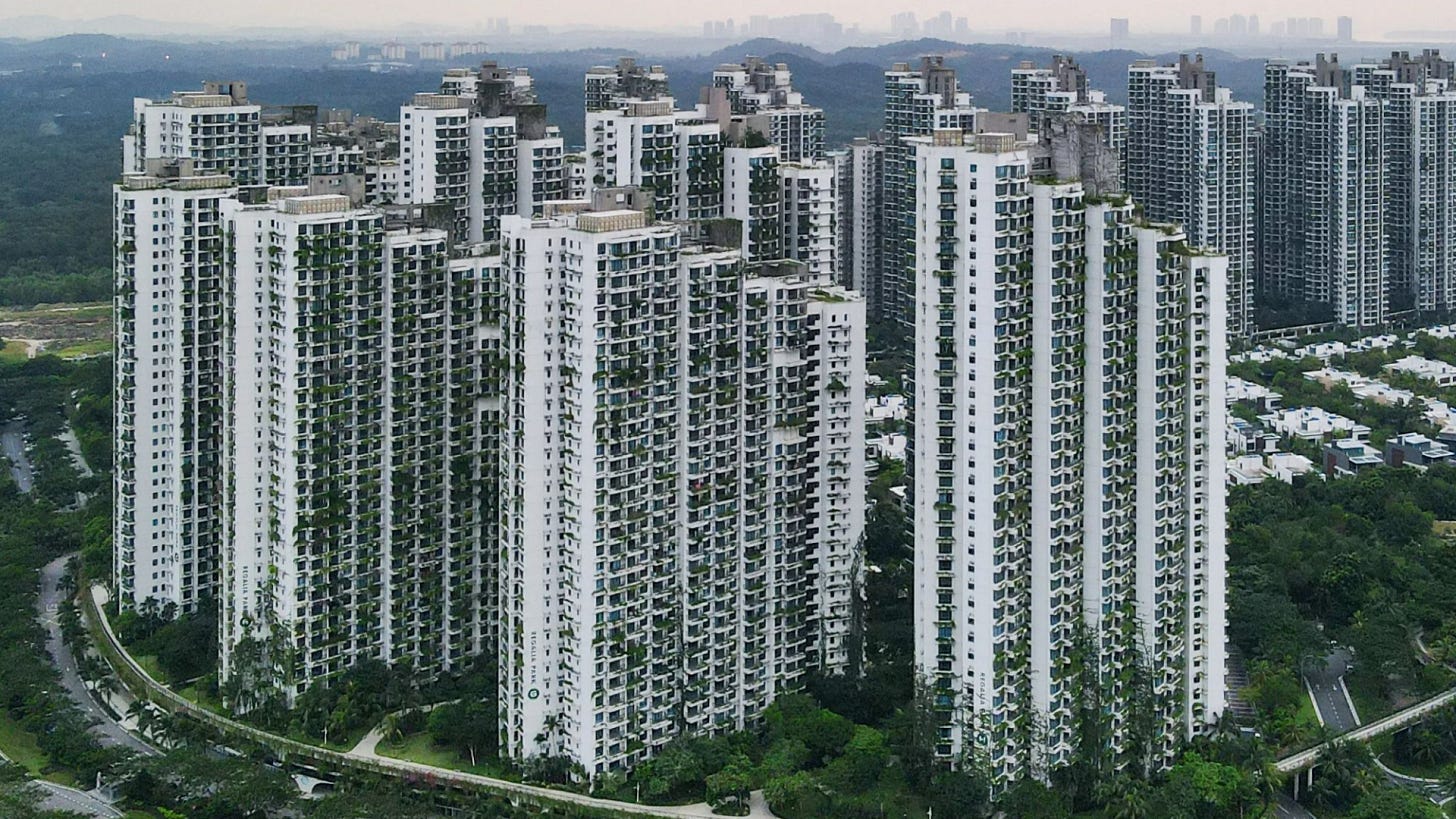China has enough vacant homes to house the entire population of France.
Sixty-five million decaying homes create eerie ghost cities across China. Not neighborhoods – entire cities. Empty. Silent. Useless. They stand as monuments to central planning gone wrong.
It's not just a real estate bubble – it's what happens when a handful of smart people think they can outthink the free market.
For decades, China's economic growth was propped up by an artificial real estate boom. Local governments, desperate for revenue from land sales, pushed massive construction projects. The middle class, with few safe investment options, poured their savings into apartments they never planned to live in.
The result? A wildly inflated property sector where demand wasn't coming from actual homebuyers but from government quotas and speculation. About 30% of China's GDP became tied to property, making the entire economy dangerously dependent on continued building – even when demographics and real consumer demand no longer supported it.
This is what happens when governments have too much power. Instead of letting millions of people make their own choices, a handful of officials in Beijing tried to mandate prosperity. They failed, as they usually do.
It’s repeated throughout history. In the Soviet Union, Nikita Khrushchev nearly starved his nation with a top-down agricultural disaster. Convinced he knew better than generations of farmers, he ordered vast tracts of land converted to corn and potatoes. His mandates ignored regional differences in soil, climate, and farming expertise. The result? Massive crop failures and widespread food shortages.
Mao's Great Leap Forward followed the same playbook, with even more devastating results. Local officials, eager to please their superiors, reported impossible grain production numbers. The central government, believing its own propaganda, exported rice while millions of their people simultaneously starved to death.
In both cases, a small group of experts thought they could bend economic reality to their will. They couldn't.
Compare this to how market economies work. No single person or committee decides what gets built, grown, or produced. Instead, millions of individual choices – by consumers, businesses, and investors – shape the economy based on real demand, not government mandates.
It’s not a new concept. Adam Smith wrote about the “invisible hand” in 1776, explaining how individuals pursuing their own self-interest unintentionally contribute to the overall good of society through market forces.
Yes, free markets can be messy. They experience booms and busts. But they have something authoritarian economies lack: self-correction. If a company overbuilds, it goes bankrupt. If a bank lends irresponsibly, it fails. It seems harsh, but it prevents the kind of systemic collapse that occurs because top-down leaders don’t clearly understand those millions of invisible hands at work.
China's leaders, like Khrushchev before them, assumed a few smart people at the top could outthink millions of individuals making decisions based on their own needs and knowledge. And failed again.
The lesson is clear: the smartest person in the room is rarely smarter than the collective intelligence of a free market.
China’s housing crisis is not just a real estate problem. It’s a cautionary tale about the dangers of trusting elites to control complex systems.
The world has seen this story before. The ending is always the same.
—Ken





Central planning never works. You nailed it. Adam Smith told us. Milton Friedman told us. Ayn Rand told us. Thomas Sowell told us. We have scientific proof in the satellite nighttime photo of the Korean Peninsula. Fans of the free market will enjoy my retelling of Atlas Shrugged. Visit Https://TheNoahOption.com/
Not surprised at all, and I'd been hearing about this for a long time through some other financial newsletters.